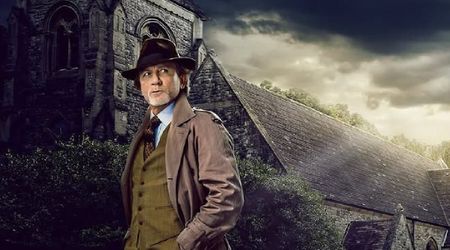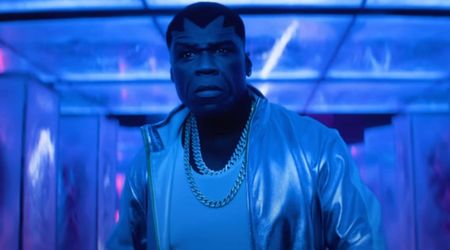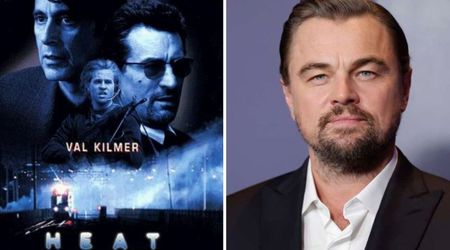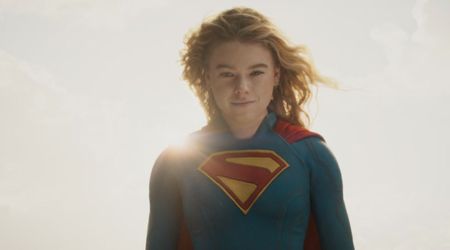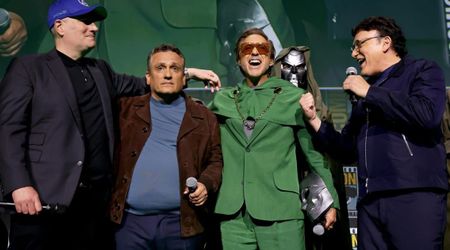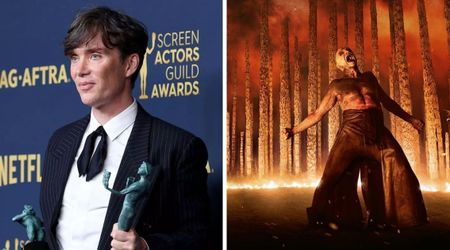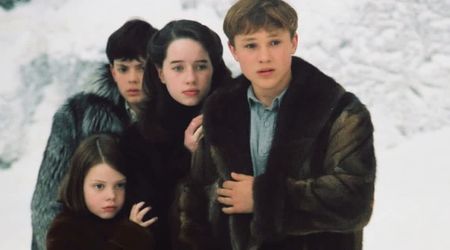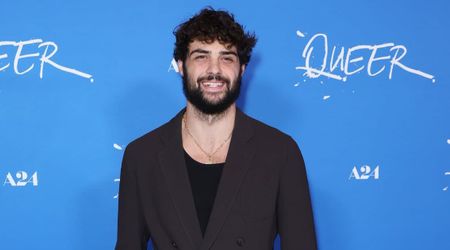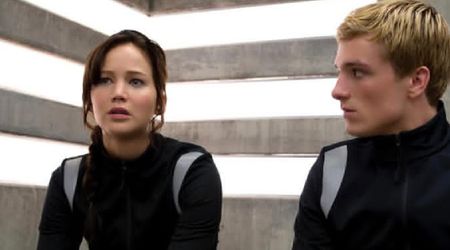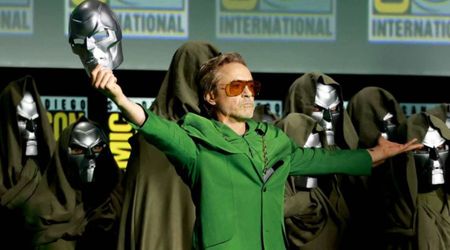‘The Trial of the Chicago 7’: Not just Allen Ginsberg, here are all the celebs who supported anti-war leaders

Spoilers for ‘The Trial of the Chicago 7’
“One has a moral responsibility to disobey unjust laws...” ― Martin Luther King Jr once said. Aaron Sorkin's ‘The Trial of the Chicago 7’ goes on to demonstrate just that as eight activists are put on trial for conspiring to incite a riot outside the Democratic Convention in 1968.
On August 2, 1968, tens of thousands of protestors gathered in Grant Park for demonstrations and were met with the full force of the police and the military. The riots, which spilled out onto the streets of Chicago ended with hundreds of protestors and policemen injured, and hundreds more arrested, including SDS members Tom Hayden (Eddie Redmayne) and Rennie Davis (Alex Sharp), Yippies Abbie Hoffman (Sacha Baron Cohen) and Jerry Rubin (Jeremy Strong), and The MOBE’s David Dellinger (John Carroll Lynch), John Froines (Daniel Flaherty), and Lee Weiner (Noah Robbins).
Not just activists, but a number of singers and celebrities also joined the movement. Poet Allen Ginsberg led demonstrators out of Lincoln Park chanting “Ommmmmm” repeatedly over a sound system for hours on end. The movie brings the controversial ‘Howl’ writer into focus. During the trial, one of the undercover FBI officers says, “I remember also at the front of the group was Mr Allen Ginsburg.” Prosecutor Richard Schultz (Joseph Gordon-Levitt) then asks him, “Allen Ginsburg, the poet?” Detective Sam McGiven (Mike Geraghty) confirms, “Yes, he was chanting a kind of war chant.”

The scene shifts to Ginsberg leading a group of protesters as he chants “Ommmm.” When Jerry asks his mates what he was doing, Abbie says, “He's channeling the energy, settling things down.” Was that working for them? Well, protesters could be seen in proper queues yelling, “Our streets... our streets,” in chorus. In another scene, Hoffman mocks how the jury interpreted it: “The guy then testified that Ginsburg was letting out a war chant, some kinda f**king jungle signal to Beat poets, that they should begin pelting the troops with blank verse.”
Did you know that not just Ginsberg but many other celebrities took part in the protests? Here's a list of the Chicago Seven's supporters: Celebrated figures from the American left and counterculture were called to testify, including singers Phil Ochs, Judy Collins, Arlo Guthrie, and Country Joe McDonald; writers Norman Mailer, Stew Albert and Anita Hoffman; guru of the drug culture Timothy Leary and activists Noam Chomsky, Ed Sanders, Judy Gumbo and Jesse Jackson. Not just that, leader of the radical Weather Underground, Bernardine Dohrn, novelist William Burroughs and Paul Krassner also joined the troop.
“Allen Ginsberg was the ninth witness to testify for the defense in the Chicago Conspiracy Trial and the first who tried to explain to the jury why at least two of the defendants had decided to come to the Democratic National Convention in the first place,” a New York Review article reads. It further states how Ginsberg’s testimony aimed to show Hoffman and Rubin's intentions were peaceful and the disturbance they meant to create was a disturbance of the spirit, a kind of artistic assault against the political philistinism of the Democratic Party. He insisted that the spiritual ingredients of this “lifestyle” were the values of peace, love, and freedom.

Meanwhile, Ochs ― also a witness ― revealed that during the planning of the protests, they “discussed the nomination of a pig for President.” He said, “I helped select the pig, and I paid for him,” adding, “Jerry Rubin was reading a prepared speech for the pig ― the opening sentence was something like, ‘I, Pigasus, hereby announce my candidacy for the Presidency of the United States.’ He was interrupted in his talk by the police who arrested us.”
Later, during the trial, Ochs was asked what song did Rubin ask him to sing that day? And he replied: ‘I Ain't Marching Anymore.’ “Now, would you stand and sing that song so the jury can hear the song that the audience heard that day?” Kunstler asked him but it was met with great opposition as Schultz said, “If the Court please, this is a trial in the Federal District Court. It is not a theater. We don't have to sit and listen to the witness sing a song. Let's get on with the trial. I object.”
While defending the Chicago Seven, lawyer William Kunstler even asked Judy Collins to sing ‘Where Have All The Flowers Gone’ from the witness stand, placing a Viet Cong flag on the defense table, and wearing a black armband to commemorate the war dead. In the 1970s after the trial was over, Collins was seen as an active participant with Hayden and his actress-wife Jane Fonda at several protests and rallies.

During that era, over 25 songs referenced the Chicago Seven and the 1968 Chicago demonstrations outside the Democratic National Convention. One of the first, released in 1968, was ‘Telling It Straight in '68’ by country artist Jim Hartley, about the 1968 presidential election. Graham Nash's song ‘Chicago’ for his debut album, ‘Songs for Beginners’ caught much attention. The lyrics ― “So your brother's bound and gagged, and they've chained him to a chair... Won't you please come to Chicago, Just to sing.” ― were a reference to Bobby Seale, the eighth defendant who was later removed from the trial.
Speaking to The Guardian in a 2015 interview, Nash said that the song had the only ever line that he wishes he'd never written. Nash said: “We were pretty blitzed. The line, ‘Regulations – who needs them?’ We need regulations. You're not allowed to drive through a red light. There are certain societal rules that we have to live by. So I sing it differently now. I say: ‘Some of those regulations – who needs them?’”
A few other songs for the protests were: ‘William Butler Yeats Visits Lincoln Park and Escapes Unscathed’ and ‘Where Were You in Chicago’ by Phil Ochs, ‘Circus '68 '69’ by Charlie Haden, ‘Christmas in My Soul’ by Laura Nyro, ‘Free Bobby Now’ by Black Panther group The Lumpen, ‘Chicago 7’ by Warren Farren, ‘Chicago Seven’ by blues artist Memphis Slim, and ‘The Chicago Conspiracy’ by David Peel.
‘The Trial of the Chicago 7’ starts streaming on Netflix on October 16, 2020.

